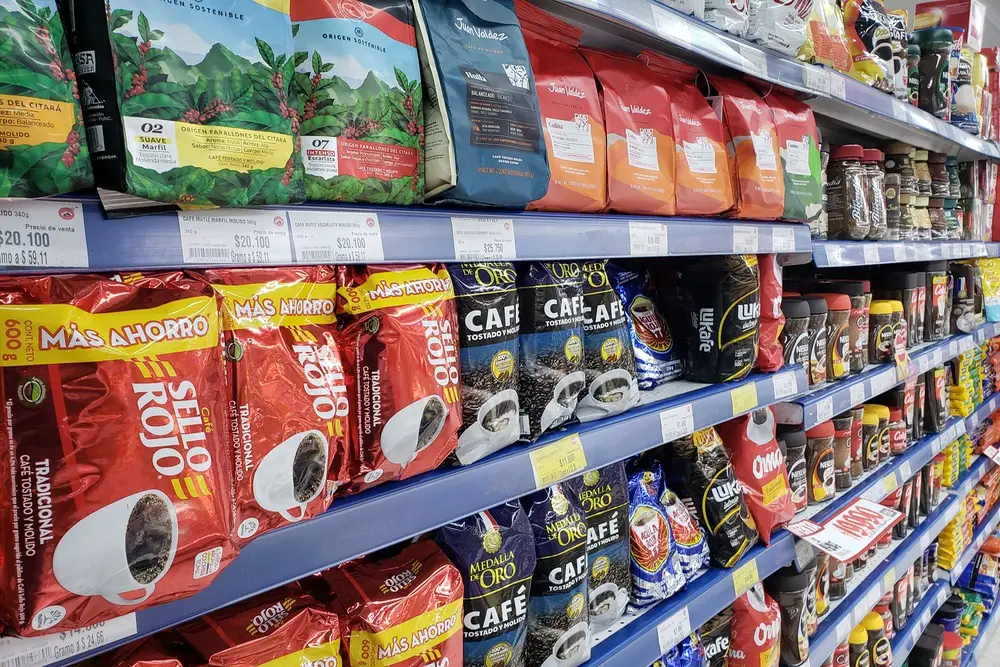Many people need their morning dose of caffeine to get them through the day, and some even need another boost in the afternoon. Most people get their caffeine through a cup (or multiple cups) of coffee, but there’s more than one way to get caffeine.
An alternative are caffeine tablets, i.e. capsules that contain a certain dose of caffeine in milligrams. While it doesn’t sound as tempting as a hot cup of coffee, some people prefer caffeine pills because of their ease of use.
Table of Contents
What are caffeine pills?
Caffeine is a stimulant that works on the nerves, brain, and spinal cord, making you feel more alert and alert. Caffeine tablets can be made from natural or synthetic caffeine. Some products may also contain inactive ingredients such as fillers, colors, emulsifiers and other additives.
While each pill is made differently, most contain between 100 and 200 milligrams of caffeine. To give you an idea of the amount of caffeine, a 20-ounce cup of black coffee contains 200-500 mg of caffeine, while the same amount of cola contains 57 mg.
Different types of caffeine pills
There are three main types of caffeine found in pills.
Caffeine Anhydrous
Anhydrous caffeine is basically the same as natural caffeine. However, it has been processed to separate the caffeine molecule from the water that is normally attached to it.
Most tablets contain anhydrous caffeine. It’s the cheapest, most researched, and most concentrated form of caffeine.
Dicaffeine malate
Dicaffeine malate is a registered form of caffeine that is far less common. It is often combined with caffeine anhydrous, but at only a tenth of the dose.
Natural caffeine or caffeine extracts
Natural caffeine is caffeine that has been extracted from a natural source such as coffee beans, tea leaves, or guarana.
What is the difference between caffeine pills and coffee?
There are some key differences between caffeine pills and coffee. Caffeine pills are more accessible and “tolerable” than coffee. Also, there are people who don’t like the taste of coffee but enjoy its effects. Since coffee can get bitter, we can add cream and sweetener. Taking a pill completely avoids the taste of coffee or the use of sugar.
On the other hand, coffee can also irritate the digestive tract and trigger heartburn, which is why some people are drawn to caffeine pills.
The healthy components of coffee
Caffeine pills contain only one active ingredient. In contrast, in addition to caffeine, coffee contains numerous active ingredients that can have a positive effect on health. This includes:
- polyphenols
- diterpenes
- alkaloids
These healthy compounds have antioxidant, anti-inflammatory, anti-diabetic, and anti-cancer effects.
Coffee also contains theobromine, which helps improve mood and increase focus. It may also help counteract some of the harmful effects of caffeine, such as B. to counteract increased blood pressure.
Pills help control caffeine intake
An average cup of coffee contains around 95mg of caffeine. However, the amount of caffeine can vary depending on the type of preparation.
It is therefore easy to consume too much caffeine. Pills are a good way to make sure you’re getting the right dose and not taking too much.
Pills can be cheaper than coffee
Caffeine pills are convenient and cheap. So, you can buy products containing 120 tablets of 200 milligrams each on Amazon for only $7 or at your local pharmacy.
On the other hand, the cost of regular coffee consumption can be quite high. However, that depends a lot on whether you’re drinking a cup of pasilla coffee (poor quality and cheap) or opting for a Kopi Luwak, imported from an exotic location and roasted, ground and brewed every morning.
Regardless of your caffeine consumption habits, you would have to make an effort for the price of coffee to be lower than the price of Pasilla.
Effectiveness over time
It can be difficult to test the effectiveness of caffeine over time, but you can monitor yourself and assess your own energy levels.
Coffee, with its lower caffeine content, is easily absorbed by the body and provides a quick boost of energy. However, at least some of that energy comes from other sources, such as the water in coffee, the psychological stimulation from drinking the beverage, and the sugars in it.
Also, the coffee wears off much quicker than a pill. This is partly due to the lower caffeine content of the drink compared to the pill.
So, a caffeine pill gives you lower but more sustained energy levels without the ups and downs of drinking coffee. A single caffeine pill usually lasts 4 to 6 hours.
Caffeine tolerance
Caffeine tablets have a higher caffeine content than most types of coffee. This means that tolerance develops faster with pills than with coffee.
There is also evidence that caffeine tolerance is at least partly psychological. This means that people given coffee show greater resilience because their mind prepares for when they start smelling the coffee or performing the act of drinking coffee. Caffeine pills lack the ritual, aroma and flavor that caffeine anticipates and are therefore more potent.
Risks of caffeine pills
Caffeine pills have a downside: since a single pill is highly concentrated, it’s easy to take too much.
What are the side effects of caffeine?
Excessive caffeine consumption (over 500 mg per day) can cause a number of problems. Nervousness, palpitations and high blood pressure are common and can lead to long-term health problems.
High doses of caffeine can cause problems like restlessness, severe anxiety, high blood pressure and heart palpitations.
Symptoms of an overdose include irritability, nervousness, tachycardia, and trouble sleeping. Other side effects, such as a rash or dry skin, can occur but do not require medical attention.
How to safely take caffeine pills
If you want to take caffeine pills, there are a few things you can do to protect yourself from overconsumption:
- Record the amount of caffeine or pills you take per day.
- Avoid highly concentrated sources of caffeine (e.g. energy drinks).
- Avoid drinking coffee when taking pills.
- Pay attention to how your body reacts to caffeine.
The best time to take caffeine pills
Caffeine tablets are best taken in the morning. You can consume them until 2 p.m., but not later because it can interfere with sleep.
Conclusion
If you work long hours and drink more than 1 to 2 cups of coffee a day, it may be advisable to switch from coffee to caffeine pills.
Ultimately, the decision to consume a caffeine pill over coffee is entirely your own. Both have a range of health benefits and can help improve focus, increase energy and help get you through the day. However, excessive consumption can have some negative side effects such as: B. an increased heart rate or feelings of anxiety.
Whichever one you choose, be sure to stick to the recommended dosage, which is less than 500 milligrams per day.



